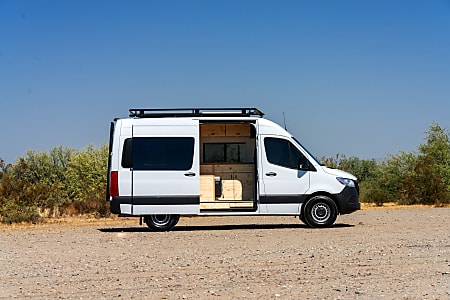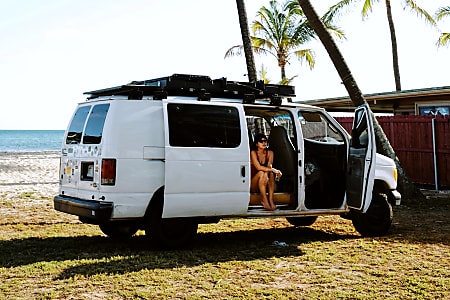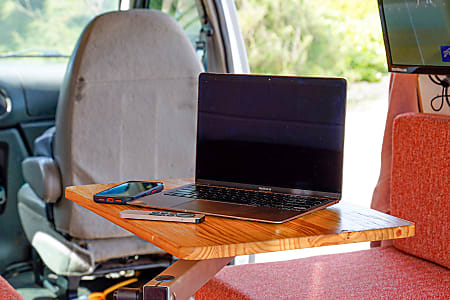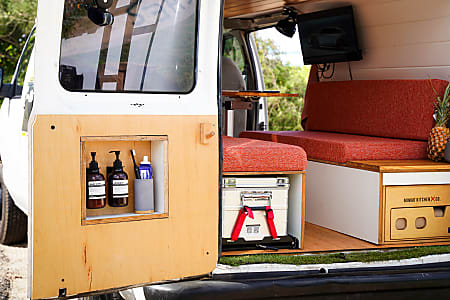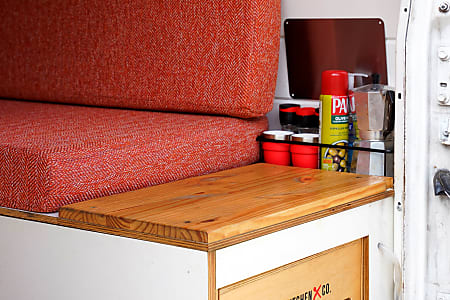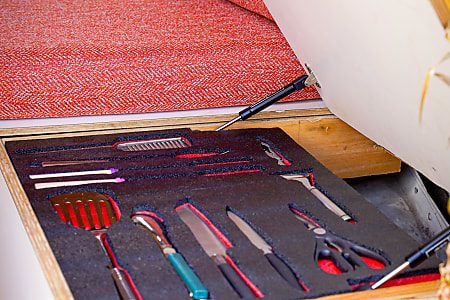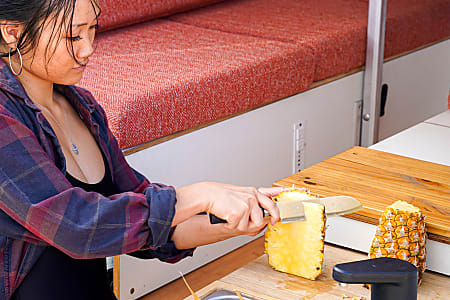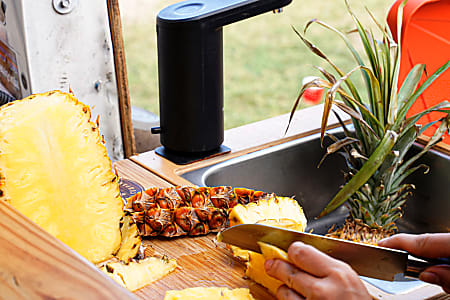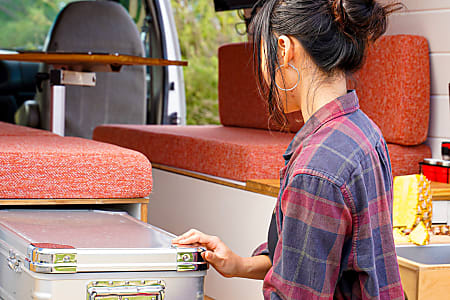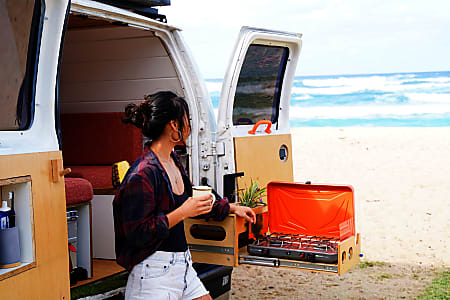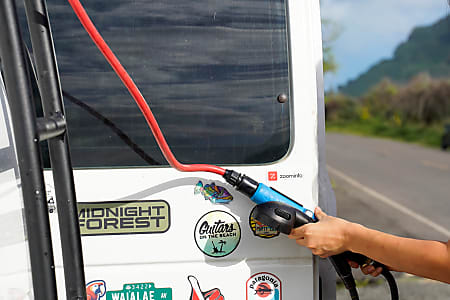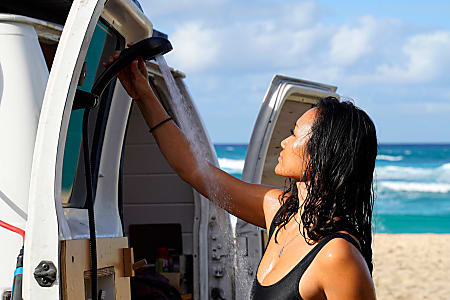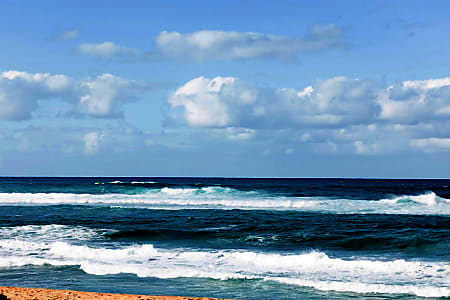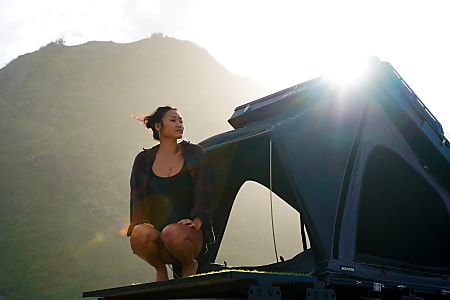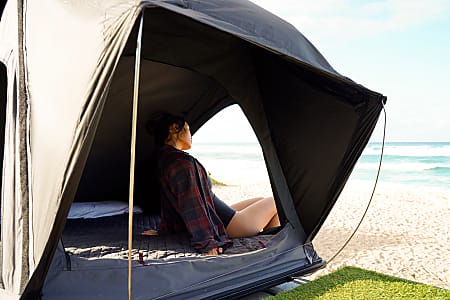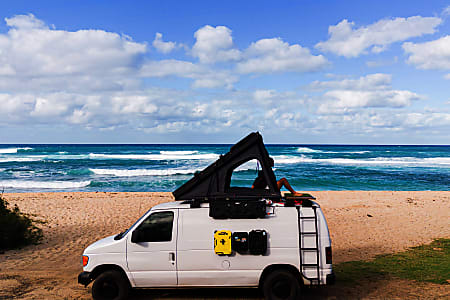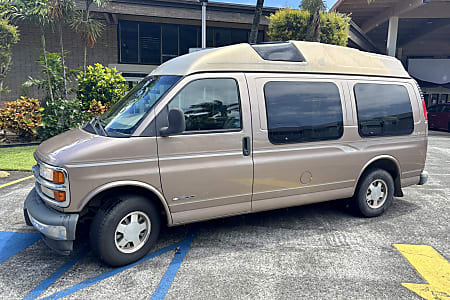RV Rental Hawaii, HI
Find the perfect RV rental in Hawaii, HI. Simple, easy and fully insured.
258 RV Rentals in Hawaii, HI
RV Rental Hawaii: Motorhome, Camper, & Trailer Rentals HI
Hawaii is unarguably one of America's most beautiful states. The eight Hawaiian Islands feature magnificent beaches, several volcanoes (two which are still active), and other incredible natural vistas. It's a great place for surfing, snorkeling, kayaking, whale watching, hiking, and sightseeing.
Visitors also love skydiving, ziplining, and taking in the scenic landscape from a helicopter. Hawaii is a haven for golfers as well as history lovers, who enjoy spending time at its various museums and memorials. You can also learn how to hula dance, rappel down a waterfall, or attend an authentic luau dinner and show.
RV rentals in Hawaii are not very common due to the islands’ infrastructure, but it is possible to explore in smaller rented campers and motorhomes. Our guide below includes some of the state’s most popular attractions, events, and campgrounds to help you plan a memorable RV trip to the Aloha State
Popular RV Destinations in Hawaii
Haleakala National Park
Haleakala National Park in Maui has everything from a rainforest and waterfalls to an alien-like landscape at its summit. Haleakala, which means "house of the sun," encompasses 33,000 acres, much of which is protected wilderness. People travel to the park specifically to witness its incredible sunrises and explore its volcanic features.
We recommend taking a drive on the scenic Hana Highway to see the coastal Kipahulu area, which features Ohe’o Falls. It's a cool place to swim, and there are several trails for hiking. The park is also a great place for mountain biking, stargazing, and horseback riding.
Pearl Harbor National Memorial
You will learn a lot about the December 7, 1941, attack on Pearl Harbor when you visit the Pearl Harbor National Memorial. It features the Battleship USS Arizona, which is submerged off the coast and still contains the remains of 900 service members who could not be recovered after the bombing.
A memorial built on top of the sunken battleship honors the marines, sailors, soldiers, and civilians who were killed in the attack. The memorial is located on the island of Oahu, and it's free for visitors. Admission to the Pearl Harbor Visitor Center and museums is also complimentary.
Waimea Canyon State Park
Also known as the "Grand Canyon of the Pacific," Waimea Canyon in Kauai is about 10 miles long and 900 meters deep. The Waimea River chiseled its way into the region's lava and basalt formation, creating the canyon. The collapse of a volcano over 10 million years ago also contributed to the canyon’s development.
The park is known for its tropical foliage, beautiful waterfalls, and stunning rainbows. You can take the scenic Waimea Canyon Drive, stop at various lookouts to observe its natural beauty, and trek over several trails geared towards all levels of hikers.
Pu'uhonua O Hōnaunau National Historical Park
Ancient Hawaiian law had things that were "kapu" or forbidden, and those who broke the sacred law were often punished by death. Pu'uhonua was a place of refuge for these lawbreakers. Located on the west coast of the island of Hawaii, Puʻuhonua O Hōnaunau National Historical Park is characterized by its huge L-shaped wall, known as the Great Wall.
The grounds also feature several ceremonial structures, such as the Hale o Keawe, 'Āle'ale'a Heiau, and the Ancient Heiau. Other points of interest include the Royal Grounds, a royal canoe landing, the Keoua Stone, and fishponds. The park is particularly beautiful if you visit at sunset.
Hanauma Bay Nature Preserve
If you're planning on visiting Oahu, Hanauma Bay located 30 minutes from Honolulu is a must-see destination. "Hana" means bay, while "uma" is a reference to the curves on indigenous canoes.
It's no surprise that Hawaiian royalty spent many years in the area to fish and for recreational purposes. It's a great place for snorkeling due to the marine life and tropical fish that inhabit the area.
The bay was voted the best U.S. beach in 2016, and in recent years officials have made sure to conserve and protect it after years of overuse. Visitors are not allowed to touch the coral or mistreat the marine animals, so make sure you’re ready to follow the rules when you go.
Events and Entertainment in Hawaii
Hawaiian Luau
If you want to immerse yourself in Hawaiian culture, we recommend attending a luau. These feasts are very festive and feature music and performances with roots in Polynesian cultures. The type of luaus held today have been going on since around 1819 and have also been known as “ahaaina” or “paina.”
While luaus are strongly associated with Hawaiian culture, not all the food and entertainment is strictly Hawaiian. The islands have a diverse population, and visitor luaus often feature other types of Polynesian dances and music. Common luau dishes include poi, kalua pig, laulau, haupia, and poke.
Aloha Festivals
Every year Hawaii hosts a series of free cultural celebrations across the state. Over one million local and international visitors attend the events, which include the Floral Parade, a ho'olaule'a in Waikiki, and a presentation of the Royal Court. The Aloha Festivals have been taking place since 1946 to celebrate Hawaiian culture.
The Floral Parade includes p'au riders (women on horseback), marching bands, hula halaus, as well as that year's Aloha Festival Royal Court. Those with Hawaiian ancestry can apply to become a part of the Royal Court, and they are honored during the festival's opening ceremony. A Hoʻolauleʻa is a block party with music, hula, and food.
Kona Coffee Cultural Festival
This 10-day festival takes place every November in honor of Kona coffee innovators, farmers, and artisans, who have been crafting the world’s famous brewed beverage for nearly 200 years. It's the state's oldest food festival and features tastings, immersive cultural events, and information about Kona's coffee history.
You can tour a coffee farm, look at coffee-related works by local artists, attend the Kona Coffee Cultural Festival Lantern Parade, watch a pageant for the Miss Hawaii and Miss America Scholarship Competition, and even learn how to be a coffee barista. If you're a coffee lover, this is a can't-miss event.
Hawaii Food and Wine Festival
Hawaii hosts the Pacific's top epicurean event every fall. Over 150 internationally recognized master chefs, culinary celebrities, winemakers, and more attend the festival, which is designed to draw attention to the state's diverse, locally grown products. Thousands of visitors attend the festival, which takes place over three weekends on three of the state's islands.
Past events have included a golf classic, cupcake decorating sessions for children, six-course dinners featuring Italian cuisine, a backyard barbecue, craft-cocktail themed events, wine and dinner on the Hawaii Convention Center rooftop, and an appetit brunch featuring drag performers.
Campgrounds and Parks in Hawaii
Malaekahana Beach Campground
Head to North Shore, Oahu, if you love surfing and need a place to park your camper for a few nights. Malaekahana Beach Campground doesn't feature any hookups or utilities, but it does have showers, toilet facilities, fire pits, picnic tables, and drinking water.
Located about 35 miles from Waikiki, this campground sits on more than 36,000 acres. It has beach access and is ideal for swimming, bodysurfing, kayaking, and surfing. The area is home to a 160-acre wildlife refuge as well as the Mokuauia Seabird Sanctuary, which is not far offshore and accessible from Malaekahana.
Papalaua Wayside Park
Papalaua Wayside Park in Maui does not have sites specifically geared towards RVs, but there are spots that are large enough to accommodate class B or C motorhomes. Amenities include restrooms, BBQ pits, and picnic tables. There are no showers or water stations, and camping is not allowed on Wednesdays or Thursdays.
The park has beach access and is a great place to swim, surf, snorkel, and kayak. It’s also officially where West Maui begins. While not the island's best beach, it's still very popular and a great place to stay if you just want to hang out by the ocean.
Wai'anapanapa State Park
Waiʻānapanapa State Park in Maui features an incredible coastline with a small black sand beach, native hala forest, sea stacks, blowholes, and anchialine pools. It’s a great place to explore a volcanic trail and enjoy a local seabird colony. The area is perfect for picnicking, fishing, and hiking.
The park allows campervans but requires a valid campervan permit. Amenities include restrooms, outdoor showers on the beach, drinking water, BBQ grills, and picnic tables. Rates are cheaper for Hawaii residents and are more expensive during the weekend and on holidays.
RV Storage and Dumpstations in Hawaii
Hawaii's unique island configuration makes it all but impossible for people to island hop with their RVs. As a result, you may need a place to store your camper when you travel from one area of the state to the other. Fortunately, Hawaii has a variety of storage options, including:
- Extra Storage Space, Honolulu
- StorQuest Self Storage, Keaau
- Aloha Self Storage, Lahaina
- Kailua-Kona Self Storage, Kailua-Kona
At some point during your RV vacation, you will be required to dispose of the vehicle's black and gray water. Most campgrounds allow guests to use their dump stations for free or a small fee. There are several facilities available for use throughout the state, such as:
- VOLCANO Recycling and Transfer Station, Kamuela
- Ewa Convenience Center, Ewa Beach
- Waipahu Convenience Center, Kapaa
- Kawailoa Transfer Station, Honolulu
FAQs
1. What are RV rentals?
Renting an RV is a fun way to travel around the country without making the financial commitment required in purchasing a motorhome.
2. How much are RV rentals?
They range in price, depending on the size of the camper and the length of the rental. Smaller trailers and camper vans cost between $75 and $150 per night, while big rigs can cost as much as $250 per night. The longer you rent the RV, the more money you will save.
3. Do I need to be a certain age to rent an RV in Hawaii?
Typically, you need to be at least 25 years old to rent an RV. However, you may be able to find an owner or company that will rent to those aged 21 to 24. Extra fees may also apply.
4. Do I need insurance when I rent an RV?
Yes. Insurance will protect you financially should you be involved in an accident while driving a rented RV.
5. Do I need to return my rental RV with a full tank?
Some, but not all, RV companies require users to return their RVs with a full tank of gas. Be sure to check with the provider in advance so you know the expectations.
6. Are RVs pet-friendly in Hawaii?
Many RV companies and owners let users travel with their pets. Always check the rental agreement, and be aware that you may be required to leave a deposit or pay an extra fee.









































































































